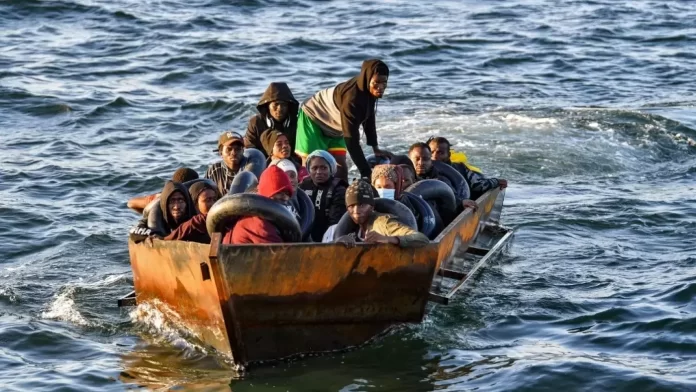Tunisian authorities increasingly blocking aid organisations from providing emergency food and water to migrants
Tunis, 17 Sep 2023: Sub-Saharan Africans in Tunisia are increasingly being denied emergency food and water supplies in the government’s latest move to crack down on migration, according to human rights observers, reported Middle East Eye yesterday.
The plight of migrants, mainly from sub-Saharan African countries, is the “worst” in modern Tunisian history, Nicholas Noe, a senior visiting fellow at Refugees International, said.
Noe has warned that multiple Tunisian NGOs, international agencies and the Tunisian Red Crescent have been compelled to stop providing much needed aid to sub-Saharan migrants in the country.
“Right now, they are effectively prohibited from providing emergency aid to migrants in and around Sfax and the rest of the country. These are basic human, ethical, moral requirements, and they’re also legally mandated,” Noe said.
“The economic situation and the social economic situation of Tunisia is materially, evidently, obviously much worse now than it was two years ago, five years ago, 10 and 15 years ago,” and it is making the life of migrants significantly worse, Noe added.
Tunisian President Kais Saied has spent the better part of the year whipping up anger against migrants who had left their countries in search for a better life in Tunisia.
Earlier this year, Saied linked people from sub-Saharan Africa to criminality and to a plan “to change the demographic structure of Tunisia”.
The latest move to restrict aid is part of an emerging pattern to make the situation more difficult both for the humanitarian sector to provide aid and for those looking to access emergency aid.
Compounding the plight of sub-Saharan migrants in the country is also Tunisia’s rapidly deteriorating economic situation, warned Noe.
People from sub-Saharan Africa have long been an important source of cheap labour in Tunisia, which can be “easily exploited because of the lack of a proper framework”, said Noe, adding that they’re “getting paid a lot less, and there’re lot less opportunities for making money in Tunisia”.
Mounir Satouri, a French member of the European Parliament’s Committee on Foreign Affairs, speaking to MEE, said the European Union should not move forward with an agreement it signed with Tunisia earlier this year to stop migration.
In July, the EU signed a deal with Tunisia that would see the North African country receive hundreds of millions of dollars in financial support in return for its help dealing with immigration to the EU.
“I deplore the terms of this agreement,” Satouri said, adding that it “depicts complicity between Europe and Tunisia for a common goal: stopping the migrants, at any cost”.
“We know perfectly well that human rights violations, [as well as] the climatic and economic situation of a country are the causes of migration,” Satouri told MEE. “It is on these subjects that Europe’s aid should focus. Instead, Europe is turning a blind eye, and taking the opportunity to satisfy its sordid inclinations for the far right.”
On Friday, the European ombudsman launched a probe into the European Commission over the controversial migration deal with Tunis.
In the meantime, significant pushback from within the EU Parliament means that the migration deal is hanging on by a thread.
“If you talk to any of the European diplomats in Tunis, a number of them are saying there is actually no deal yet,” Noe said.
“Tunisia doesn’t have a migration policy in place. It has an adhocracy, and it’s a failing and chaotic adhocracy. It’s one that is producing bad results for everyone.
“At a very minimum, we’re saying that the emergency aid requirements of food and water that just got cut off in Sfax need to be restarted immediately.”




